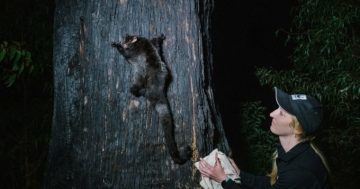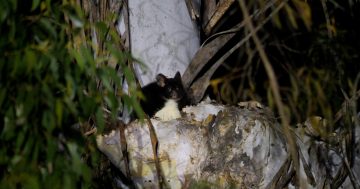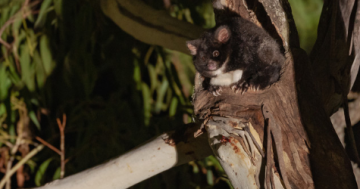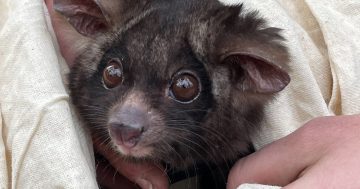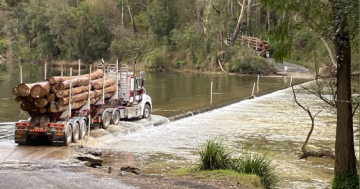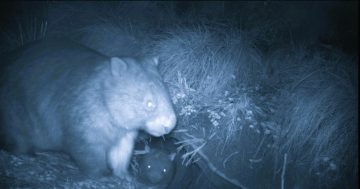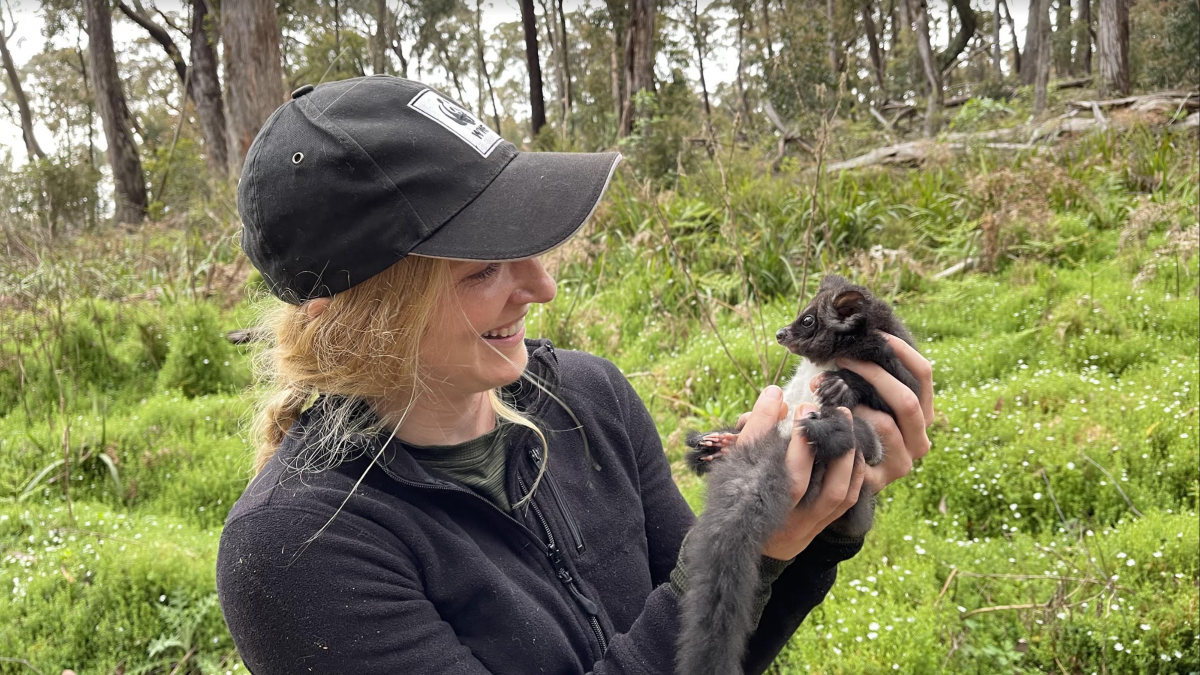
A team of researchers are now looking at data on impacts of bushfires on the greater glider’s behaviour, including Kita Ashman (above) and Vivianna Miritis. Photo: Vivianna Miritis.
They’re nocturnal, fluffy marsupials with big ears and a long tail, and they’re part of a study seeking to better understand how animals respond to bushfires.
A group of greater gliders in Tallaganda State Forest are part of a research project looking at forest conditions after the Black Summer bushfires and their impact on forest-dependent animals.
One of the researchers is PhD candidate Vivianna Miritis, who says she has her own way of describing these small animals, which are actually the largest gliding marsupial.
“They look a little bit like the beast from The NeverEnding Story,” she jokes.
“Greater gliders are our largest gliding marsupial and they range in size between a kilo and 1500 grams,” Ms Miritis said.
The study is a partnership between the University of Sydney and the WWF Australia, with funding provided by the latter and the NSW Environmental Trust.
“My PhD is focused on the Black Summer fires,” Ms Miritis explained. “As part of my project, I developed this chapter that looked at GPS tracking and arboreal species in fire-affected landscapes.”
“I decided greater gliders would be a good species to choose to study, and so I developed this project and then reached out to WWF-Australia as a potential collaborator,” she said.
Analysis in the study is currently underway.
“Through the study, I want to look at how the animals are moving through the landscape.”
From September to October 2022, ecologists climbed to nesting hollows in trees to capture the marsupials from burnt and unburnt forest areas and bring them to the ground.
Ms Miritis and her team worked to attack a lightweight collar with a GPS tracker to the animal. The collars recorded a snapshot every 30 minutes, from dusk to dawn, for 30 days.
Once the 30 days were up, the animal was re-caught and the collar was removed.
“These animals really haven’t been GPS tracked before, other than in two other studies that I know of, and they haven’t published their data yet,” she said.
The population in Tallaganda State Forest was chosen as the researchers had confidence there would be enough members for the study.
Greater gliders were listed as endangered in 2022.
“Being from Victoria, I used to go hiking a fair bit and would see greater gliders a lot,” Ms Miritis said. “But over time, they’ve also started to disappear, especially at lower elevations, and that’s why we chose the Tallaganda State Forest population.”
“That is very likely as a result of climate change and higher temperatures, they just don’t tolerate higher temperatures very well.”
Ms Miritis said she is now starting to analyse the data collected through the study.
The data will hopefully provide information on habitat quality and the condition of the forest, how an animal is moving through their environment and the impact of bushfires on where an animal moves to and looks for food.
It will hopefully help to create a bigger-picture understanding of forest conditions after the Black Summer bushfires, and what that means for a variety of animals, she said.
“Greater gliders are an indicator of great forest quality, because a lot of the habit requirements they need also apply to a lot of other species.
“Conservation of them encompasses the requirements of many other forest-dependent species.”
“By protecting them, we’re protecting other species, as well,” she said.






